Image: Dr. Marc DelMonico responding to colleagues at the international meeting, “Promotion and Formation of the Laity: Best Practices” on September 26, 2018. Cardinal Kevin Farrell, Prefect for the Dicastery on Laity, Family and Life, which sponsored the meeting, is on the right. (Credit: Dicastery on Laity, Family and Life. Used with permission.)
This entry continues my reflections looking back on my September trip to Rome for the first-of-its-kind gathering – the “Formation and Promotion of the Laity: Best Practices” conference. This gathering of 40 representatives from 15 countries was convoked by Cardinal Kevin Farrell, Prefect for the Dicastery on Laity, Family and Life, following the submission of reports by 54 episcopal conferences (out of 150 inquiries) in response to the 2017 circular letter requesting information on these practices. The event was chaired by Dr. Santiago Pérez de Camino, head of the Promotion and Formation of the Laity section of the Dicastery and held on the beautiful grounds of Casa San Juan de Avila – a residence for students, pilgrims, and visitors to Rome on the grounds of the Spanish Episcopal College, approximately 3-5 miles to the west of the Vatican.
The purpose of the meeting – the first of its kind – was to highlight the initiatives for forming the laity to live their vocational and baptismal mission, in accordance with the diversity of cultures and particular needs of each country. The 3-day event also provided support and information for episcopal conferences that have not yet developed patterns of practices for the formation of the laity, aside from sacramental preparation. The meeting served to establish relationships between the Dicastery and the various representatives of episcopal conferences, the offices and organizational departments associated with formation of the laity in the conferences, as well as between the participants themselves. The opportunity for mutual collaboration and support was seen as essential by all the participants in furthering the dissemination of these formational best practices.
I previously spoke here in anticipation of my first ever visit to Rome for this important event and my role in it, and here on the inspiration the international delegates received from an unexpected reception of our group by Pope Francis himself. I also wanted to take some time to summarize the meeting itself, and highlight the reports which were shared at it, including the co-authored report from me and my colleague Dr. Julia Dezelski, representing the USCCB. Our presentation at the event consisted of a short summary of this larger report. This entry focuses more attention on the U.S. report, but concludes with links to the other reports and will be followed up with a post highlighting overall insights garnered from all the reports.
Julia’s area of our presentation focused on the growth and development of best practices among lay ecclesial movements and dioceses who are engaged in the work of building up the faith of their members, encouraging their involvement in the wider life of the church and society, and working to form genuine disciples who have a desire to spread the good news of the Gospel in their lives. She also highlighted recent examples of synodal participation by the laity in discernment and strategic planning at the request of the USCCB – the 2017 Convocation of Catholic Leaders and the late September 2018 national gathering associated with the national Hispanic Ministry V Encuentro process.
My focus area was developing best practices in formation for lay ministry in the U.S. today, drawing upon the groundwork laid by decades of theological reflection and ministerial practice, the 2005 USCCB document Co-Workers in the Vineyard of the Lord: A Resource for Guiding the Development of Lay Ecclesial Ministry, the work of the USCCB Subcommittee on Certification for Ecclesial Ministry which my office resources, and the activities of independent but collaborating lay ministry organizations and diocesan lay ministry formation programs which the Subcommittee certifies.
With regard to the lay ministry aspect of the U.S. presentation, I highlighted the foundation laid by the Second Vatican Council’s promotion of the apostolate of the laity, and how the growth of lay ministry in the U.S. over the last 30-50 years has built upon that solid foundation. The USCCB, in its 2005 Co-Workers document recognized this development within the life of the church and the endeavors of lay people themselves, who have often sought out their own formation for ministry of the church. Co-Workers highlighted the growth in the U.S. of lay ecclesial ministry during this period. Lay ecclesial ministry refers to particular roles for ministry in the life of the church which do not require ordination, but which include collaboration and mutual responsibility with ordained parish leadership and the diocesan bishop for some specific area of ministry responsibility within the institutional church and for the People of God.
Co-Workers highlighted four major areas of formational development needs viewed as necessary for all lay leaders in ministry and service among the People of God. Those four areas of formation – human, spiritual, intellectual and pastoral – along with an increasing need for intercultural competence, have, in the years since the release of the document, been voluntarily incorporated into a number of diocesan and lay ministry organization programs of formation. These developmental components are often expressed based on particular benchmarks – or standards – by which that formation can be peer-evaluated and affirmed, leading ultimately to authorization by a bishop of a lay ecclesial minister for a particular role in ministry in the diocese. The processes for determining these standards, and the standards themselves, were resources we were able to provide to the international delegates.
I noted in my section of the report that the importance of well-formed ministers continues to be recognized as a consistent need, especially as the U.S. church presently continues to struggle with responses to the sexual abuse of children and vulnerable adults by clergy and the abuses of power which have lead to cover ups regarding such cases. While the abuse crisis was not a central topic either of my presentation or those of the other delegations, it was a leitmotif throughout the three day event, with focus on addressing the temptation to and exercise of the sin of clericalism which Pope Francis has clearly identified as an overarching spiritual and structural cause of this global abuse crisis in his “Letter to the People of God” from August 20.
I was proud to highlight the ways in which the programs of formation which voluntarily submit their standards for certification of lay ministers to the USCCB Subcommittee on Certification are reviewed to especially ensure comprehensive standards for training lay ministers in the procedures for, and required actions mandated by, the 2003 USCCB Charter for the Protection of Children and Young People. The standards also require that lay ministers be properly trained in pastoral responses to survivors of abuse. The compliance of the lay ministry standards with the Charter works to enhance the safety of children and vulnerable adults in our church.
Turning to the full breadth of the meeting, the representatives from the other 14 nations provided similar verbal summary reports and also offered substantive written reports. Links to the reports are provided below, but the list of the participating countries is as follows:
- From Africa: South Africa, Ghana, Nigeria
- From South America: Brazil, Venezuela, Peru
- From North America: Canada, Mexico, United States
- From Central America & the Caribbean: Cuba
- From Asia: Philippines
- From Oceania: Australia
- From Europe: France, Germany, Italy
The meeting included several other presentations as well:
- Introductory remarks by Cardinal Kevin Farrell;
- Presentations on best practices for formation of the laity in society from Dr. Ricardo Calleja Rovira, Lecturer of Business Ethics at the IESE Business School in Spain, and Maria Paz Lagos, Director of Catholic Voices (Voces Católicas) in Chile;
- A summary of the work of the Dicastery, reported by Dr. Pérez de Camino;
- A roundtable focused on empowering the laity for evangelization with representatives from three significant lay movements:
- Matteo Trufelli, President of Catholic Action in Italy and Secretariat of the International Forum of Catholic Action
- Paola Marangione, representing the work of “Parish Cells of Evangelization” who explained this endeavor in the context of her own parish, Sant’Eustorgio in Milan
- Juan Miguel Ortiz, speaking of Cursillos de Cristiandad in the Mexican context;
- A concluding report summarizing key ideas and prospects for further conversations and engagement by Rev. Alexandre Awi Mello and Dr. Linda Ghisoni, Secretary and Undersecretary of the Dicastery, respectively.
The Dicastery on Laity, Family and Life summarized each day’s activities with news posts on their website, which include links to the reports of all the represented countries and the other presentations:
- “Promotion and Formation of the Laity: Good Practices” – September 25, 2018
- “The Good Practices in the Formation of the Lay Faithful” – September 26, 2018
- “Lay People Working for a New ‘Missionary Mind’” – September 27, 2018
- “From the Americas to Asia and Beyond … the Good Practices of the Catholic Laity” – September 28, 2018
- “A Preferential Option for the Laity” – October 1, 2018
In addition, photos from the meetings can be seen on the Dicastery’s Flickr stream or in the gallery below.
In an future blog post, I’ll highlight the key takeaways from this significant meeting synthesized from all of the reports and presentations.
The following are images taken from the Dicastery on Laity, Family and Life’s Flickr stream and are used with permission.

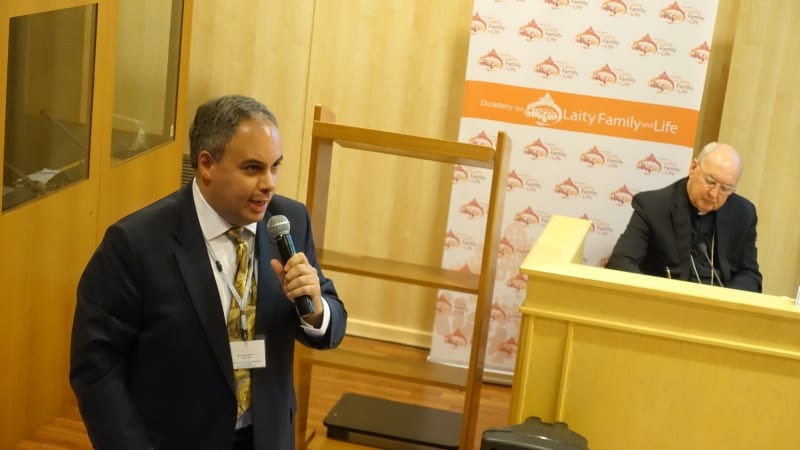
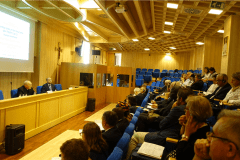
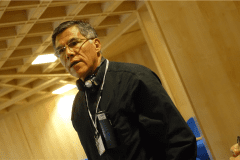
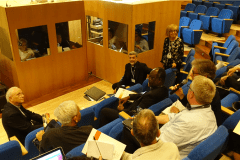
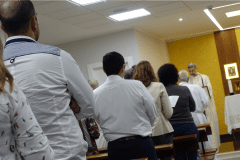
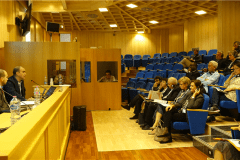
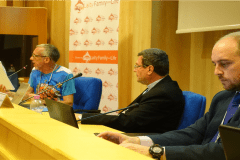
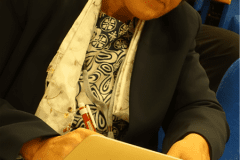
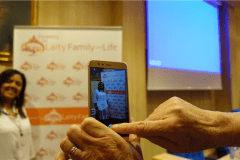
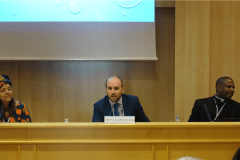
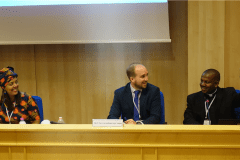
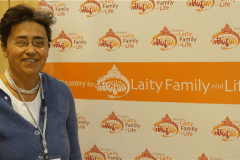
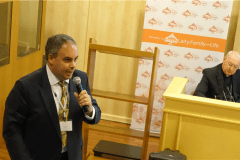
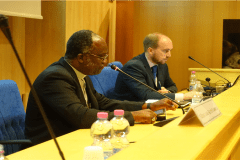
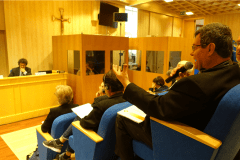
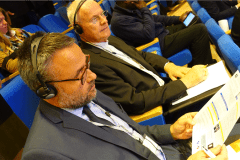
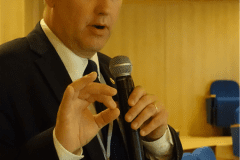
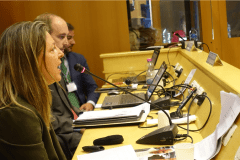
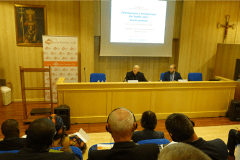
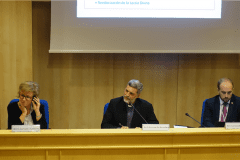
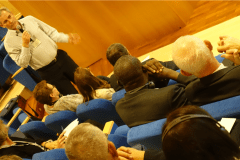
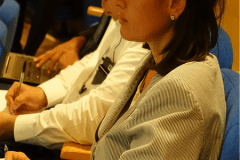
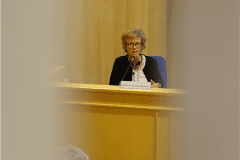
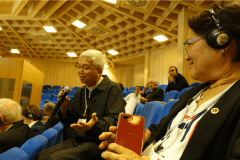
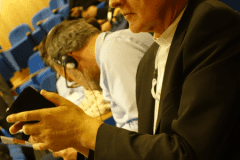
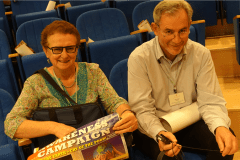
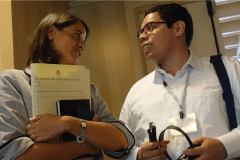
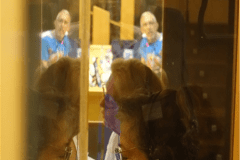
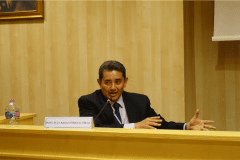
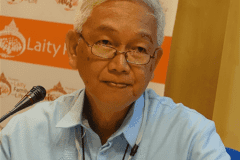
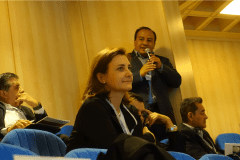
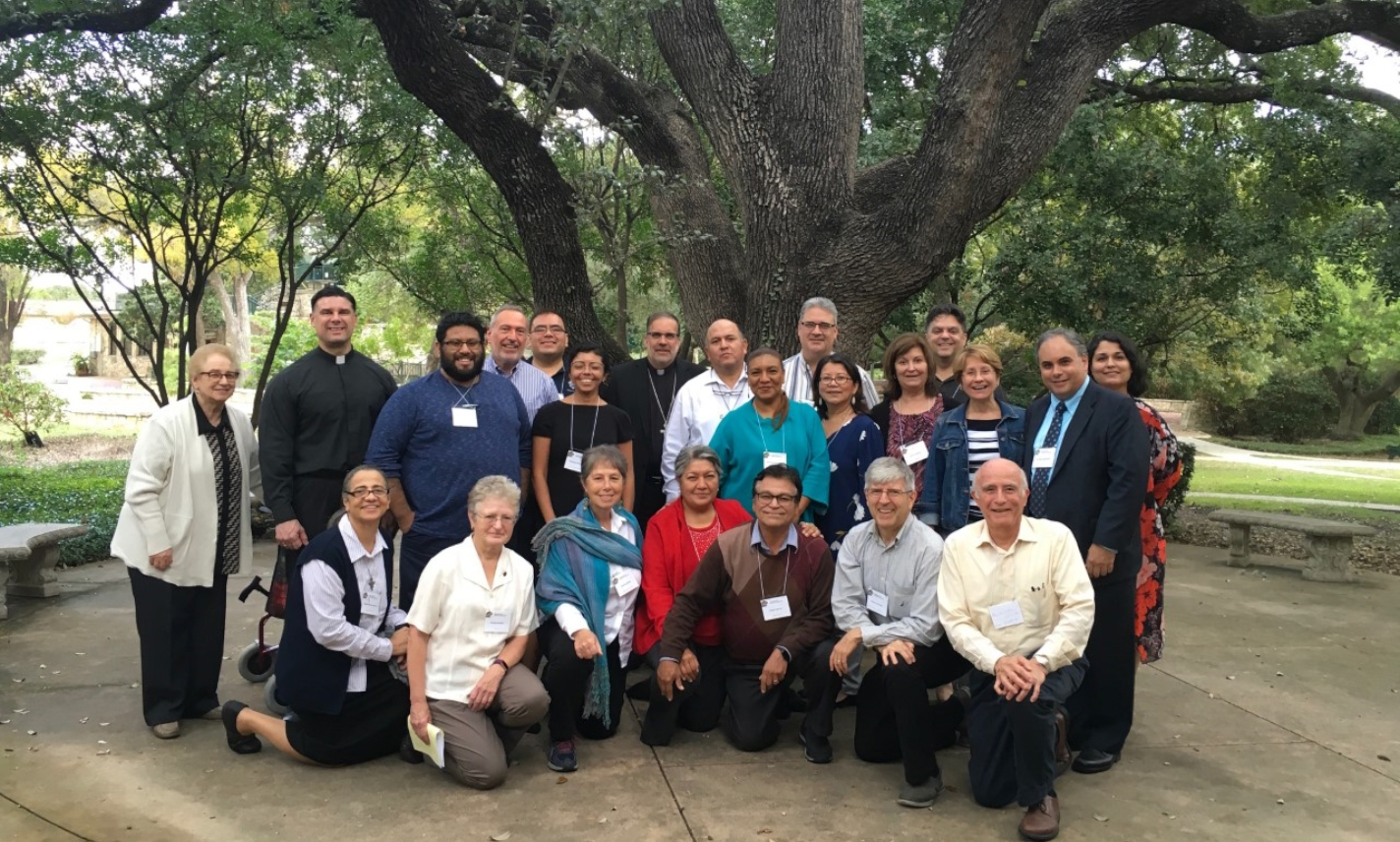
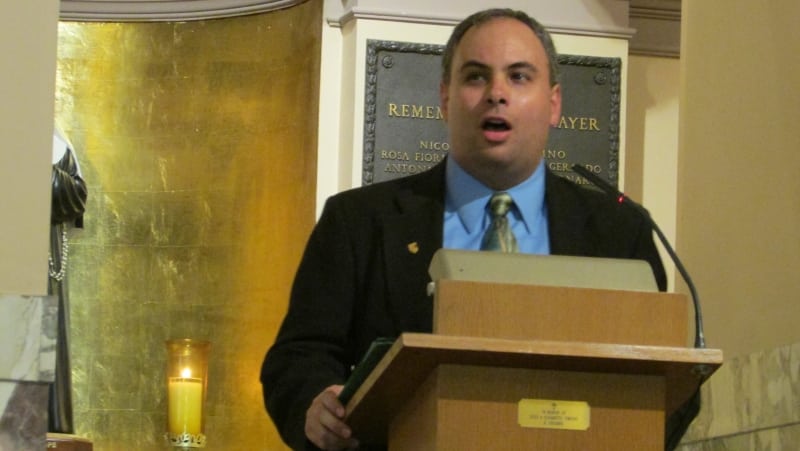 Request Dr. DelMonico's professional services for a liturgical, ministerial or leadership consultation, or for an academic or public presentation.
Request Dr. DelMonico's professional services for a liturgical, ministerial or leadership consultation, or for an academic or public presentation.